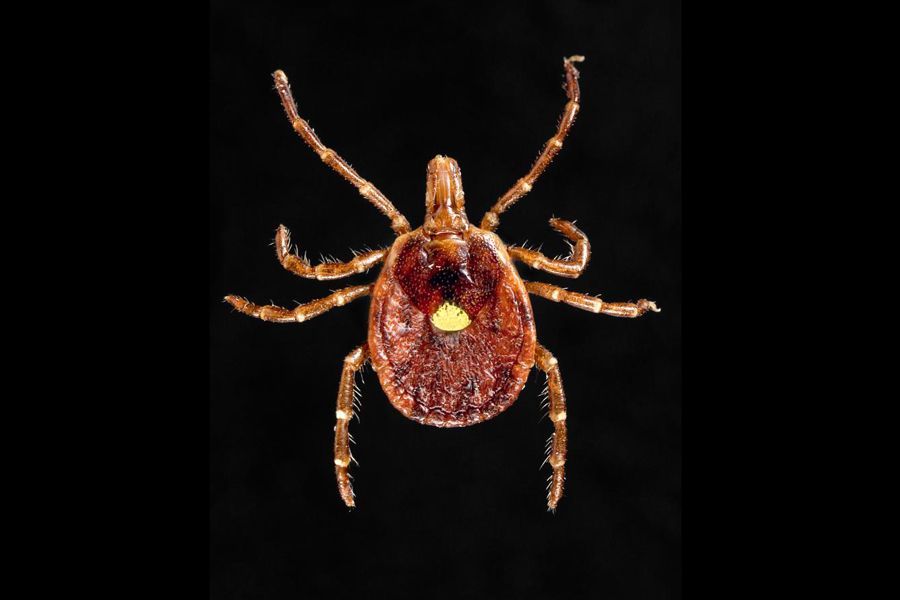Man's Death from 'Heartland Virus' Shows Wide-Ranging Effects on the Body

This story was updated at 4:12 p.m. ET on Oct. 28.
NEW ORLEANS — The death of a 68-year-old Tennessee man in 2015 sheds light on a rare tick-borne pathogen known as the Heartland virus, according to a new report of the man's case.
When doctors analyzed tissue samples from the man's body after his death, they found signs of the virus in nearly every tissue in his body, according to the report.
The Heartland virus was first found in patients in Missouri in 2009. However, the virus wasn't described in the medical literature until 2012. Since then, there have been very few cases of the virus, and only two deaths have been reported, according to the report, presented here today (Oct. 27) at IDWeek 2016, a meeting of several organizations focused on infectious diseases.
The 68-year-old man first came to the hospital because he had pain and a rash on his leg where he thought he had been bitten by a tick, said Dr. Mary-Margaret Fill, an epidemic intelligence service officer at the Tennessee Department of Health and the lead author of the study. The man was generally healthy, and worked as a landscaper, Fill said.
Indeed, scientists think that the Heartland virus is transmitted through tick bites; several studies have shown that the Lone Star tick, which lives in roughly the eastern half of the U.S., carries the virus. [10 Important Ways to Avoid Tick Bites]
The man was initially treated with a drug called doxycycline, which is an antibiotic often used when doctors suspect that a patient has tick-borne illness, Fill said. But the man got sicker and returned to the hospital, where additional tests showed that he had symptoms associated with a tick-borne disease, though the exact disease was unknown, she said.
Sign up for the Live Science daily newsletter now
Get the world’s most fascinating discoveries delivered straight to your inbox.
His symptoms increased in severity, and the man eventually went into shock, Fill told Live Science. He was placed on a ventilator, given medications to keep his blood pressure up and put on dialysis for kidney failure, she said. However, despite the very aggressive care the man received, he died, she said.
Currently, not much is know about the Heartland virus. In the case of the 68-year-old man, it wasn't until after the man passed away that doctors determined he had the Heartland virus, Fill said. [The 9 Deadliest Viruses on Earth]
After the man died, tissue samples were sent to the Centers for Disease Control and Prevention (CDC) for an "unexplained death evaluation," Fill told Live Science. Researchers at the CDC determined that the man had had the Heartland virus, and asked Fill and her team to investigate the man's case further.
A widespread infection
Previously, scientists have found the Heartland virus in patients' bone marrow and blood, Fill said. In the first patient who died from the Heartland virus, the virus was also detected in his lymph nodes and spleen, she added.
But in this case, investigators found the virus in the man's liver, pancreas, heart, lungs, bowels, kidneys, testes, skin, muscles and brain, Fill said.
In the tissues where the virus was found in his body, the researchers also found damage, Fill said. For example, the researchers noted inflammation in the heart, and bleeding, inflammation and scarring in the kidneys, she said. It's unclear, however, if the damage came from the virus itself or from the immune system's response to the virus, she said.
In addition, the virus's presence in various organs may explain some of the man's symptoms, Fill said, though this is just a hypothesis, she added. The man's confusion and altered mental state may have been caused by the virus infecting his brain, and the man's kidney failure may have been caused by the presence of the virus in the kidneys, she said.
Ultimately, the virus "can cause a much more widespread infection than we knew," Fill said. The new report suggests that even in relatively healthy people, the infection can spread rapidly throughout the body and be fatal, she added. Fill noted, however, that it is likely that in the vast majority of cases of Heartland infection, people have mild symptoms or possibly no symptoms at all.
Currently, there are no treatments for the Heartland virus, besides giving the patient supportive care, Fill said. In addition, the only way to test for the virus is to send a blood sample to the CDC, she added.
But people can take precautions to prevent getting tick bites, Fill said. She advised people to wear long pants and long sleeves in areas where ticks are present, and to use bug spray with DEET.
The findings have not yet been published in a peer-reviewed journal.
Editor's Note: This story was updated to include information regarding the severity of the virus in the majority of cases.
Originally published on Live Science.













